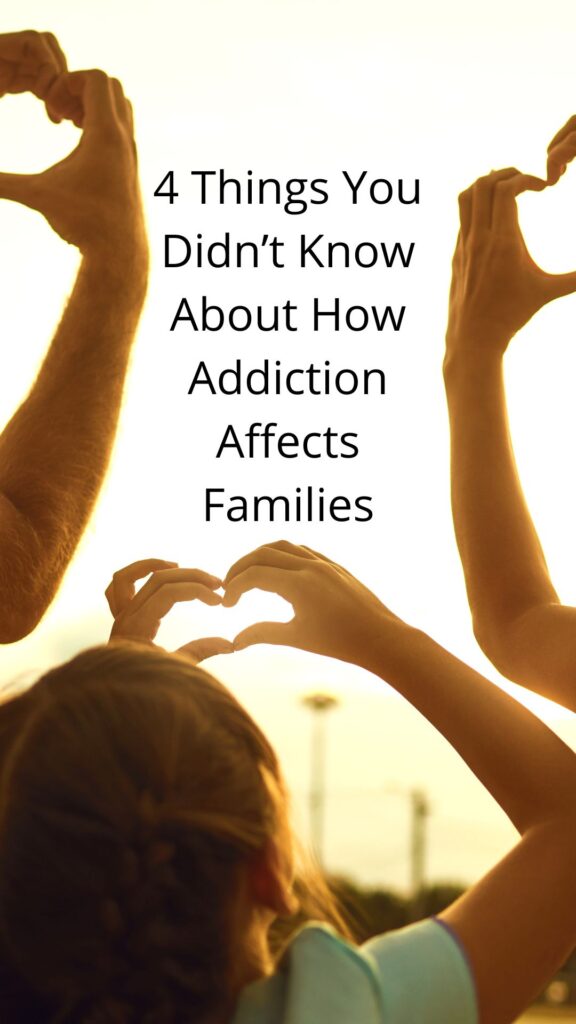Talking to your family about your recovery can feel overwhelming. You might worry about judgment, misunderstandings, or not receiving the support you need. However, open and honest communication is key to building a supportive environment as you navigate sobriety. By preparing for the conversation, setting clear expectations, and advocating for your needs, you can foster healthier relationships and ensure your loved ones understand how to support you.
Why Family Support Matters in Recovery
Recovery is challenging, and having a strong support system makes a significant difference. Family members can offer emotional encouragement, accountability, and practical help when needed. However, addiction can strain relationships, and past experiences may create tension.
Healthy communication helps rebuild trust and allows your family to better understand the changes you are making. When your loved ones are involved positively, recovery can feel less isolating, and you may find greater motivation to stay on track.
Preparing for the Conversation
Before talking to your family, reflect on what you want to communicate. Consider these key points:
- Are there specific concerns to address? Family members may have questions or misconceptions about addiction and recovery. Being prepared to answer these with honesty can ease their concerns.
- What do hope to gain from them? Are you looking for encouragement, patience, or simply a listening ear? Identifying your expectations beforehand helps set the tone for a productive conversation.
- When and where should you talk? Choose a time when everyone is calm and available to engage in an open discussion. A private and comfortable setting can make it easier to talk without distractions.
How to Approach the Conversation
When speaking with your family about recovery, clarity and honesty are essential. Keep these strategies in mind:
- Use “I” statements to express yourself without sounding accusatory. For example, instead of saying, “You never supported me,” try, “I felt alone during my struggles, and it would mean a lot to have your suport.”
- Explain your journey in simple terms. Let them know where you are in your recovery, whether you are newly sober, attending treatment, or working with a support group.
- Be honest about challenges. Recovery is not always easy, and acknowledging your struggles helps set realistic expectations.
- Address their concerns. Family members may have fears or doubts. Listen to their thoughts and provide reassurance when possible.
- Educate about addiction and recovery. Many misconceptions exist, so explaining that addiction is a disease rather than a moral failing can help remove stigma.
Seeking Professional Help for Support
In some cases, involving a professional can make a big difference in facilitating communication with your family. A licensed counselor, therapist, or interventionist can provide guidance and structure to difficult conversations.
- Interventionists can help if family members struggle to understand the seriousness of addiction or need assistance in addressing concerns constructively.
- Family therapy can provide a safe space for you and your loved ones to express feelings, learn healthy communication techniques, and rebuild trust.
- Support groups for families of individuals in recovery, such as Al-Anon or Nar-Anon, can help educate and empower family members to provide more effective support.
- Counseling for yourself can also be beneficial in preparing for these discussions and developing coping strategies for challenging interactions.
Seeking professional help is not a sign of weakness but rather a proactive step toward building healthier relationships and ensuring a more supportive recovery journey.
Set Boundaries and Manage Expectations
Not every family member will react positively, and that is okay. Setting boundaries is crucial to protect your mental and emotional well-being. Consider these guidelines:
- Be clear about what is helpful and what is not. If certain behaviors or comments are triggers, communicate that firmly but respectfully.
- Avoid guilt-tripping yourself. You are not responsible for how others react to your recovery.
- Prepare for mixed responses. Some family members may not understand or be ready to accept your journey. Focus on those who are supportive.
- Suggest professional help if needed. Family therapy or addiction education programs can provide guidance for those struggling to understand the recovery process.
What to Do If Your Family Doesn’t Support You
Unfortunately, not all families are supportive, which can be difficult to accept. If you encounter resistance or negativity, consider these options:
- Seek support elsewhere. Find encouragement through recovery groups, therapists, or sober friends who understand your journey.
- Focus on self-care. Prioritize your well-being by engaging in activities that promote your mental health and sobriety.
- Set firm boundaries. If a family member is actively harming your recovery, limit your interactions with them when possible.
- Stay committed. Your recovery is for you, not anyone else. Remember why you started and keep moving forward, regardless of others’ opinions.
Be Patient And Be Honest About Your Recovery
Talking to your family about your recovery may be difficult, but it is an important step in building a supportive environment. By approaching the conversation with honesty, patience, and clear expectations, you can help your loved ones understand your needs.
Even if not everyone is immediately supportive, remember that your recovery journey is about your well-being. Surround yourself with people who uplift and encourage you. You can create healthier relationships and a stronger foundation for lasting sobriety with time, understanding, and effort.

